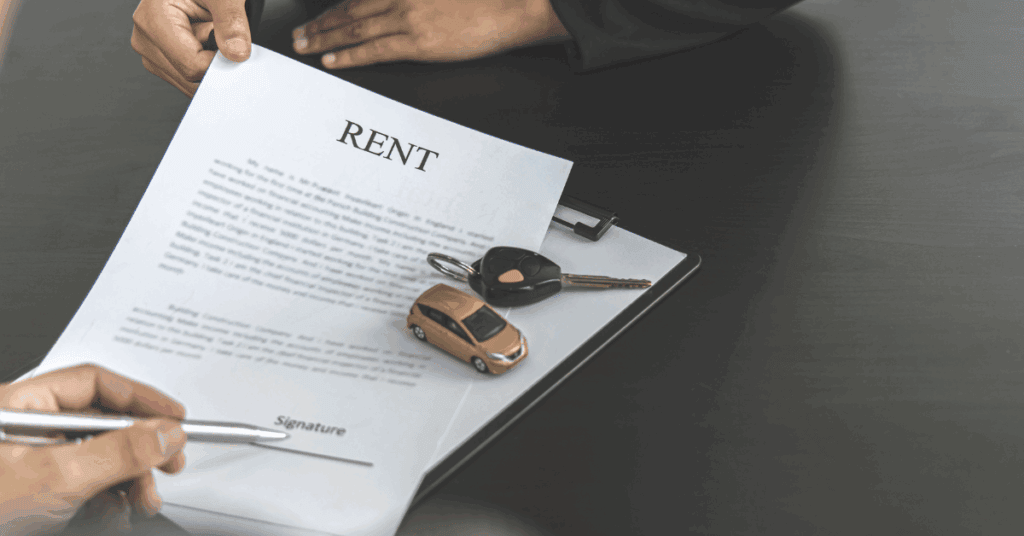Protect Your Rental Investment with Steadily
- Comprehensive coverage for fire, water, vandalism, and more
- Quick online quotes—get insured in minutes
- Tailored policies for short, mid, and long-term rentals
- Nationwide availability across all 50 states
Educational Content | Not Financial Advice | Connect with Licensed Professionals
Unlocking the secrets of landlord insurance in Arkansas is a game-changer for anyone looking to safeguard their rental investments. If you’re a property owner eager to protect your assets and boost your bottom line, understanding Arkansas property insurance is essential. From landlord coverage options that shield you from unexpected setbacks to navigating the intricate web of Arkansas landlord-tenant laws, there’s a lot to unpack. So, why not take a deep dive into the nitty-gritty of rental property insurance in Arkansas? With the right insights and tools at your disposal, you can turn potential risks into opportunities for growth and success in the vibrant real estate market.

Landlord insurance in Arkansas offers several critical coverage options to protect property owners. Property damage coverage is at the forefront, safeguarding against risks like fire, storms, or vandalism. This ensures that the physical structure of your rental property remains intact against unforeseen events. Liability insurance is another essential component. This coverage protects you if you’re found legally responsible for injuries or property damage that occur on your premises. It’s a safeguard against costly legal battles and settlements. Loss of income coverage is vital, too. If a covered peril renders your property uninhabitable, this coverage compensates for lost rental income, helping you stay financially afloat. Moreover, optional coverages like rent guarantee or natural disaster insurance can be included for enhanced protection. These landlord coverage options are designed to address the unique challenges faced by rental property owners, making them integral to any property investment strategy.
Landlord insurance in Arkansas can cost around 20-30% more than standard homeowners insurance. This price difference reflects the added protections necessary for rental properties. Factors influencing the cost include property value, location, and chosen coverage limits. Higher-value properties or those in disaster-prone areas often face steeper premiums. Despite this, you have the flexibility to tailor your policy to fit specific needs. Customization options allow you to opt for essential coverages while potentially excluding less relevant ones to manage costs. For instance, a single-family home might require different coverage than a multi-family unit or vacation rental. Assessing the risks associated with your property type can help you decide on optional coverages like rent guarantee insurance or coverage for personal property used for maintenance. By customizing your policy, you can ensure comprehensive protection while controlling expenses, aligning with your investment strategy and risk tolerance.
Landlord insurance in Arkansas is versatile, covering a wide range of property types. Whether you own a single-family home, a multi-family unit, an apartment complex, or a short-term vacation rental, there’s likely a policy tailored to meet your needs. Single-family homes are commonly insured under these policies, providing robust protection against common risks like property damage and liability claims. Multi-family units and apartment complexes may require more comprehensive coverage due to the increased number of tenants and associated risks. These properties often benefit from additional liability and loss of income coverage. For short-term vacation rentals, policies can include provisions specific to the transient nature of guests, offering peace of mind in a dynamic rental environment. By understanding the specific risks and requirements of your property type, you can select a landlord insurance policy that provides adequate protection, ensuring your investment remains secure in Arkansas’s diverse real estate market.
Protect your investments with ease – get a quote from Steadily today!Understanding Arkansas landlord-tenant laws is crucial for any property owner. These laws establish the rights and responsibilities of both parties, ensuring a fair and transparent rental relationship. For instance, security deposits in Arkansas cannot exceed two months’ rent and must be returned within 60 days after the tenant vacates, minus any legitimate deductions for damages. Landlords are also required to provide at least a two-day notice before entering a tenant’s residence for repairs or inspections, respecting tenant privacy while maintaining property standards. Moreover, Arkansas law mandates that properties be kept in a habitable condition, emphasizing landlord responsibilities for necessary repairs and maintenance. Anti-discrimination laws protect tenants from unfair treatment based on race, color, religion, sex, national origin, familial status, or disability. Familiarizing yourself with these laws not only helps in compliance but also fosters trust and cooperation between you and your tenants, creating a more positive rental experience.
Security deposits and repairs are significant aspects of the landlord-tenant relationship in Arkansas. Landlords can charge a security deposit of up to two months’ rent. This deposit serves as a financial safeguard against potential damages caused by tenants. However, it’s essential to handle these deposits correctly; they must be returned within 60 days after the tenant moves out, with deductions made only for damages beyond normal wear and tear. Documentation of damages and repair costs can help avoid disputes. On the repair front, Arkansas law requires landlords to maintain rental properties in a condition fit for habitation. This means addressing essential repairs promptly, such as plumbing, heating, or electrical issues, to ensure the property remains livable. Regular maintenance not only fulfills legal obligations but also helps preserve the property’s value and tenant satisfaction. By managing security deposits and repairs effectively, landlords can maintain positive relationships and protect their investment.
Tenant rights and protections in Arkansas are designed to ensure fairness and prevent discrimination in the rental process. Tenants are protected from discrimination based on race, color, religion, sex, national origin, familial status, or disability under state and federal laws. These protections promote equal housing opportunities for all prospective tenants. Additionally, tenants have the right to a habitable living environment. This means landlords must perform necessary repairs and maintenance to keep the property safe and livable. Arkansas law also protects tenants from retaliatory eviction. This means a landlord cannot evict a tenant for exercising their legal rights, such as filing a complaint about unsafe living conditions. Understanding these rights is crucial for tenants to advocate for themselves and for landlords to maintain compliance and foster positive landlord-tenant relationships. By respecting tenant rights and protections, landlords can create a respectful and cooperative rental environment, benefiting both parties.
Ensuring you have adequate landlord insurance coverage in Arkansas is fundamental to protecting your investment. Start with the basics: property damage and liability insurance are non-negotiable. Property damage coverage safeguards your rental property against risks like fire, storms, or vandalism. Liability insurance covers legal costs if you are found responsible for injuries or property damage linked to your rental. Consider additional coverages based on your property’s unique risks. For instance, loss of income coverage is invaluable if a covered event renders your property uninhabitable, compensating for lost rental income. Evaluate optional coverages like rent guarantee insurance, which covers unpaid rent if a tenant defaults, and natural disaster insurance for properties in high-risk areas. Regularly review and update your policy to reflect changes in property value, rental rates, and occupancy. By ensuring adequate coverage, you not only protect your assets but also gain peace of mind, allowing you to focus on growing your real estate portfolio.
Regular inspections are a critical aspect of effective property management for landlords in Arkansas. They serve multiple purposes, from maintaining the property’s condition to ensuring compliance with lease agreements. Regular inspections help identify potential issues before they escalate into costly repairs. By detecting problems early, landlords can schedule timely maintenance, preserving the property’s value and functionality. Inspections also provide an opportunity to ensure tenants are adhering to the terms of the lease, such as usage guidelines or occupancy limits. This proactive approach can prevent disputes and maintain a harmonious landlord-tenant relationship. Furthermore, routine checks can enhance tenant satisfaction by showing your commitment to providing a safe and well-maintained living environment. When conducting inspections, it’s important to respect tenants’ privacy, providing appropriate notice as required by Arkansas law. By making regular inspections a priority, landlords can protect their investment and reduce the likelihood of unforeseen problems that could impact their rental income.
Crafting clear lease agreements is a fundamental best practice for landlords in Arkansas, establishing the foundation for a successful rental relationship. A well-drafted lease agreement outlines the terms and conditions of tenancy, ensuring both parties understand their rights and responsibilities. Key components should include rent amount, payment due dates, and methods of payment. Clearly define the maintenance responsibilities of both landlord and tenant to prevent misunderstandings. Include rules regarding security deposits, including the amount, conditions for deductions, and the timeline for returns. Additionally, address property usage guidelines, such as restrictions on modifications and policies on pets or smoking. It’s also wise to include clauses on dispute resolution and lease termination to provide a clear path for handling potential conflicts. By crafting a comprehensive and unambiguous lease agreement, landlords can minimize disputes, foster positive tenant relationships, and protect their property interests, contributing to the long-term success of their rental business.
Don’t leave your properties unprotected – get your quote from Steadily now!This article is for educational purposes only and does not constitute financial, legal, or investment advice. Mortgage rates, terms, and requirements vary by lender and individual circumstances. Always consult with qualified, licensed mortgage professionals before making financial decisions. REInvestorGuide.com may receive compensation from featured lenders and service providers.
Our advise is based on experience in the mortgage industry and we are dedicated to helping you achieve your goal of owning a home. We may receive compensation from partner banks when you view mortgage rates listed on our website.


